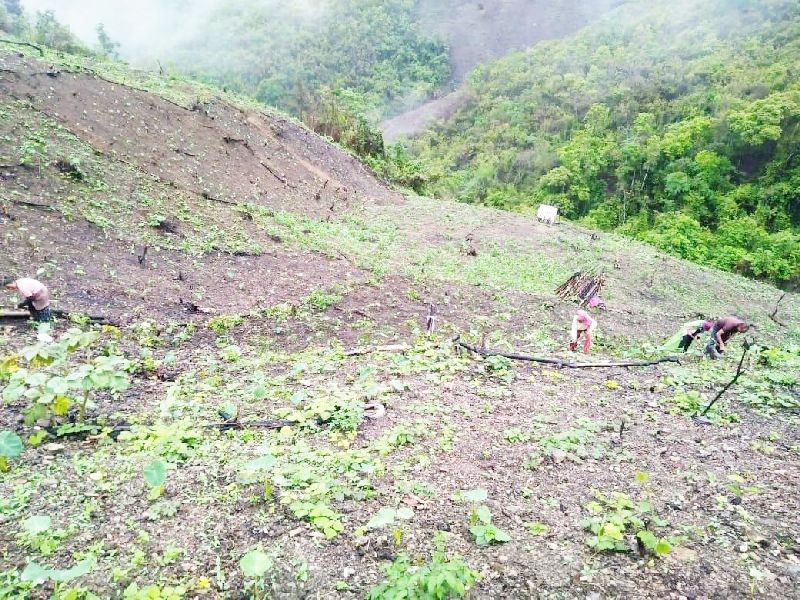Farmers practice shifting cultivation under Meluri sub division of Phek district.

Our Correspondent
Kohima | August 20
The proposal for establishment of full-fledged Soil Testing Laboratories in all the 11 district headquarters and one Fertilizer Quality Control Lab and Bio Organic Fertilizer Quality Control Lab at Dimapur is in the pipeline.
This was stated in the Annual Administrative Report 2019-2020 of the Department of Soil & Water Conservation, Nagaland, tabled in the recently concluded 6th session of 13th Nagaland Legislative Assembly (NLA) here.
The report stated that the department since its inception has been working to incorporate/intervene modern techniques on soil and water conservation with the traditional methods/practices such as countor trenching, countor bunding, check dam, gully plugging, land shaping, farm pond, micro irrigation, reclamation of acidic soil and agro forestry etc to tackle the problems effectively.
The report stated that the policy of the department is to optimize the land capability through various technological interventions and improving upon traditional practices in conserving the scarce natural resources on catchment/watershed basis.
This will result in better environmental protection and enhance farmers’ income, which will ultimately ensure peace, progress and prosperity in the state.
Implementation of Soil Health Card Scheme
In 2019, the department has been entrusted to implement Soil Health Management and Soil Health Card Scheme under National Mission for Sustainable Agriculture.
Since its commencement, the department has under pilot project for model village programmes of Soil Health Card Scheme has identified74 village from all the 74 blocks of the state.
This aims to provide soil health card to each and every farmer of the selected villages, the report stated adding that the target set for the said project is 27,304 soil samples, 3, 042 demonstration and 74 farmer/Krishi Mela.
Identified problems
The commitment and the endeavour of the department is to bring about sustainable development in harmony with nature through optimum development and judicious utilization of natural resources by overcoming certain problems.
Hilly natural terrain highly susceptible to soil erosion
Nagaland is a young mountainous hilly state, highly dissected featuring high hills, sharp crest, ridges, deep gorges, narrow valleys and a few hundred square kilometers of plains alone the foothills in the western part of the state (8.48%).
High annual rainfall matter
The annual rainfall of the state varies from 150cm to 220 cm, which is a blessing if optimally harnessed but also a problem under prevailing topography and land use in the state.
High erosive velocity of surface runoff washed away the fertile top soil and inundates the streams and rivers, resulting in flash floods, thereby reducing the productivity of land and hampering the recharge of ground water.
Extensive practice of shifting cultivation
Shifting cultivation is the major land use in the state, involving 1, 35, 339 rural households and annually covering about 947.37 sq. km which constitutes 5.71% of total geographical area.
This vast area under traditional jhum results in soil degradation, which ultimately affects production and productivity of land.






